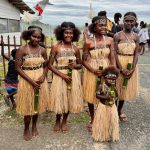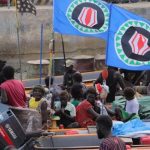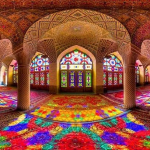Bulgaria, a country spanning an area of 110,994 square km in southeastern Europe, is bordered by Romania to the north, Turkey, and Greece to the south, and Macedonia and Serbia to the west. The Black Sea lies to the east of Bulgaria. Due to its strategic position, Bulgaria has played host to various cultures, nationalities, and empires over the course of its existence. In this section, we’re going to look into the range of various languages spoken in Bulgaria.
Currently, Bulgaria has a population of 7.4 million people which is predominantly located in urban areas. Bulgarians are the dominant ethnic group in the country, and the minority groups are Turkish and Roma people. There is also a growing number of foreign expats from Russia, the US and Western Europe looking to take advantage of Bulgaria’s low cost of living, stunning natural beauty, and amazing Black Sea coastline.
Official Language Of Bulgaria – Bulgarian
Bulgarian is an Indo-European language and is the official language of Bulgaria. It’s spoken by the vast majority of the Bulgarian population. The Bulgarian language is a close relative of the Macedonian language and a member of the Slavic group of languages. The Cyrillic alphabet is used to write Bulgarian.
The Bulgarian and the Macedonian language possess several features that set them apart from other Slavic languages. The development of the suffixed definite article, removal of case declension, lack of a verb infinitive, etc., are some of the changes visible in these two Slavic languages.
Minority Languages Of Bulgaria
The two main minority languages spoken in Bulgaria are Turkish and Romani.
Turkish – The Turkish language is spoken by the Turks residing in Bulgaria. The Turks arrived in the region from Anatolia during the 14th and early 15th century when the Ottomans conquered the Balkans. Turkish is also spoken by the native Bulgarians whose ancestors converted to Islam during the Ottoman rule in the region. Today, the Turks form the largest minority group in Bulgaria and thus Turkish is the most commonly spoken minority language in Bulgaria.
Romani – The second widely spoken minority language in Bulgaria is the Romani language. The language is spoken by the Romani people in the country who are descendants of the Romani nomadic migrants. These migrants arrived in Bulgaria from Northern India via the Bosporus and Dardanelles towards the end of the 13th century. They also continued to arrive during the five centuries of Ottoman occupation of the region.
Foreign Languages In Bulgaria
A number of foreign languages are spoken in Bulgaria. Russian is the most commonly spoken foreign language in the country. 35% of the country’s population claim to possess a workable knowledge of this language. English is the second most common foreign language in Bulgaria. Italian and Spanish and French are the other popular foreign languages spoken in the country.
English language in Bulgaria
English proficiency among most Bulgarians is improving massively, especially compared to just a few years ago. In some places and situations, you can find many Bulgarians speaking impeccably fluent English.
The younger generation in Bulgaria tends to speak a decent level of English due to a knowledge of English being associated with leading to better prospects, within Bulgaria and the wider English speaking countries and educational institutions. This is especially true in big cities like Sofia, Plovdiv, and Varna. As a rule, the bigger the city, the more you’ll find English speakers.
This is due to the work environment in many companies, especially in the tech and tourism industry, and more exposure to English-speaking tourists.
If you struggle with the language barrier in Bulgaria when travelling outside the cities, then use only simple words that anyone can quickly grasp. Carry a small English – Bulgarian dictionary or even better, utilize google translator and its offline function.
Discover Bulgaria and Beyond on our Soviet Europe Tours.





